
Introduction
Papua, Indonesia’s easternmost province, is often associated with its stunning natural beauty, rich biodiversity, and vibrant cultural traditions. But beyond the forests, highlands, and seas, Papua has birthed extraordinary individuals who have etched their names into the history of the nation through courage, perseverance, and a relentless pursuit of justice and dignity.
This article honors five national heroes from Papua whose stories are not only woven into the national fabric of Indonesia but also carry urgent lessons for today’s generation. In an era of social transformation, digital distractions, and identity crises, these heroes offer beacons of integrity, courage, and visionary leadership.
1. Frans Kaisiepo
The Voice of Papua in the Indonesian Struggle for Independence
Who Was He?
Frans Kaisiepo (1921–1979) is one of the most iconic national heroes from Papua. Born in Wardo, Biak, he became a teacher and later an influential politician and nationalist figure who advocated for Papua to become part of Indonesia.
In 1946, he participated in the Malino Conference, where he courageously voiced his support for unifying Papua with Indonesia—despite opposition from Dutch colonial authorities.
Why Is He a Hero?
- Visionary Leader: Long before Papua officially became part of Indonesia, Kaisiepo already envisioned unity and sovereignty for the archipelago.
- Governor of Papua: He served as the fourth Governor of Irian Jaya (now Papua), where he worked to improve infrastructure, education, and integration.
- Peacemaker: Promoted peaceful political processes amid heated debates on the status of Papua.
Legacy for Today
Kaisiepo teaches young people the power of patriotic courage, intellectual advocacy, and diplomatic persistence. In 2020, he was honored on the new 10,000 Rupiah banknote—a symbol of his national impact.
2. Silas Papare
Diplomat of Dignity and Defender of Unity
Who Was He?
Silas Papare (1918–1978) was a fierce advocate for Papua’s integration into the Republic of Indonesia. Born in Serui, Papua, he was a former KNIL (Dutch colonial army) soldier who turned against colonialism and joined the Indonesian nationalist cause.
He formed the Free Indonesia Irian Organization (OPII) in 1946 and worked to mobilize support for Indonesian independence in Papua and international forums.
Why Is He a Hero?
- Unifier: His work was instrumental in countering Dutch narratives and helping the world see Papua as part of Indonesia’s identity.
- Member of MPRS: He served in Indonesia’s highest legislative body, the Provisional People’s Consultative Assembly.
- Strategic Thinker: Advocated peacefully and smartly in international forums, including lobbying at the United Nations.
Legacy for Today
Silas Papare embodies the values of civic bravery, national unity, and strategic leadership. His legacy urges young Papuans to engage in constructive dialogue and global diplomacy while embracing their cultural identity.
3. Marthin Indey
From Colonial Policeman to Freedom Fighter
Who Was He?
Marthin Indey (1912–1986) was initially a Dutch colonial police officer but underwent a transformation after witnessing injustice. He became a covert supporter of Indonesian independence and later a public activist for integration.
He was arrested several times by Dutch forces due to his pro-Indonesian stance but never wavered in his loyalty to the cause.
Why Is He a Hero?
- Transformative Journey: His story of shifting from a colonial agent to a nationalist symbolizes redemption and awareness.
- Grassroots Mobilizer: Helped educate Papuans about the benefits of joining Indonesia.
- Political Contributor: Played a critical role in political mobilization during the UNTEA (United Nations Temporary Executive Authority) era in the 1960s.
Legacy for Today
Marthin Indey stands as a role model for the power of choice, moral courage, and the capacity to rise above one’s circumstances. He shows that anyone—even those once part of a system—can become an agent of change.
4. Johannes Abraham Dimara
The Warrior of West Papua’s Unification
Who Was He?
Johannes Abraham Dimara (1916–2000) was a soldier, activist, and diplomat whose efforts significantly contributed to Papua’s integration with Indonesia. Born in the Yos Sudarso Bay area, he served in various Indonesian military campaigns, including those in Papua.
He is best known for raising the Red-and-White flag in West Papua and being imprisoned by the Dutch—further cementing his status as a revolutionary hero.
Why Is He a Hero?
- Symbol of Resistance: His defiance against Dutch colonialism made him an icon of Papuan resistance and Indonesian nationalism.
- Cultural Bridge: Worked to ensure the smooth cultural integration of Papuan identity within the broader Indonesian framework.
- Military Valor: Fought in several campaigns to liberate territories from colonial influence.
Legacy for Today
Dimara’s bravery reminds today’s youth of the importance of sacrifice and patriotic determination. His name lives on in educational institutions and streets across Papua.
5. Arnold Ap
Cultural Guardian and Martyr of Identity
Who Was He?
Arnold Clemens Ap (1946–1984) was a Papuan anthropologist, musician, and cultural leader. While not officially recognized as a national hero, many Papuans view him as a cultural martyr.
He founded the group Mambesak, which revived traditional Papuan songs and performances, promoting indigenous identity amid growing political tensions.
Arnold Ap was arrested and later killed under suspicious circumstances by Indonesian security forces—believed to be due to his cultural activism.
Why Is He a Hero?
- Cultural Resilience: Through music, language, and art, he gave voice to the Papuan identity.
- Fearless Educator: Used public broadcasting and performances to teach and inspire.
- Martyr of Peace: Chose nonviolent cultural activism as a means to assert dignity.
Legacy for Today
Arnold Ap symbolizes the power of cultural expression, nonviolence, and art as resistance. In the digital age, where identity is often diluted, Ap’s legacy reminds us to stay rooted in our culture while embracing modernity.
Why the Current Generation Must Follow Their Footsteps
Each of these figures contributed uniquely—through diplomacy, governance, music, or grassroots resistance. They teach timeless lessons:
| Value | Lesson from Hero |
|---|---|
| Courage | Frans Kaisiepo, Dimara |
| Diplomacy | Silas Papare |
| Cultural Pride | Arnold Ap |
| Transformation | Marthin Indey |
| Resilience | All of them |
In today’s world—where misinformation, cultural erosion, and youth apathy run rampant—the stories of Papuan heroes offer grounding principles:
- Know your roots
- Fight for justice peacefully
- Use knowledge as a weapon
- Never betray your people
- Stand tall, even in the face of adversity
How the Government and Schools Can Honor These Heroes
To ensure their legacy lives on, institutions must:
- Integrate local hero education into national curriculum.
- Support documentaries and local cinema that highlight their lives.
- Fund memorial sites and museums in Papua.
- Encourage youth forums to discuss Papuan contributions to Indonesia.
- Provide scholarships under their names for young Papuans pursuing leadership and culture.
Conclusion: Building the Future on the Shoulders of Giants
Papua has given Indonesia not just natural wealth and beauty—but also exceptional humans whose hearts beat for justice, unity, and dignity. The five heroes featured here—Frans Kaisiepo, Silas Papare, Marthin Indey, Johannes Abraham Dimara, and Arnold Ap—represent the soul of Papua and the spirit of Indonesia.
The next generation must not let their sacrifices be forgotten. Their legacy is not just historical—it is instructional.
The future of Papua, and of Indonesia as a whole, depends on youth who dare to walk in their footsteps—not by replicating the past, but by embodying their values in new and innovative ways.
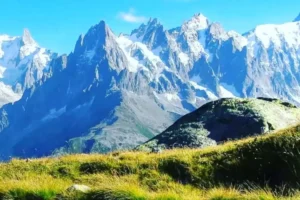
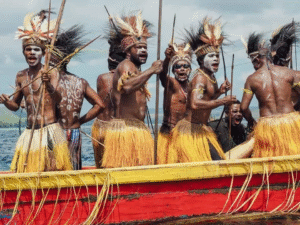
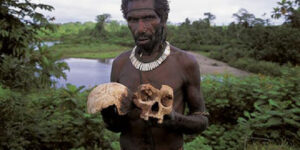


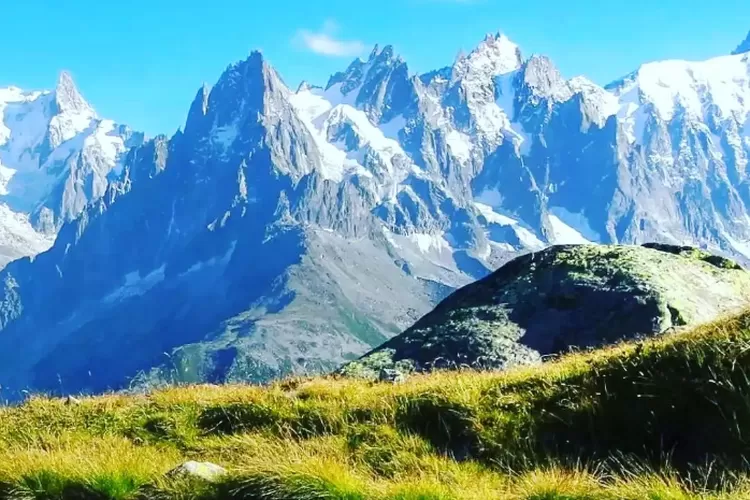
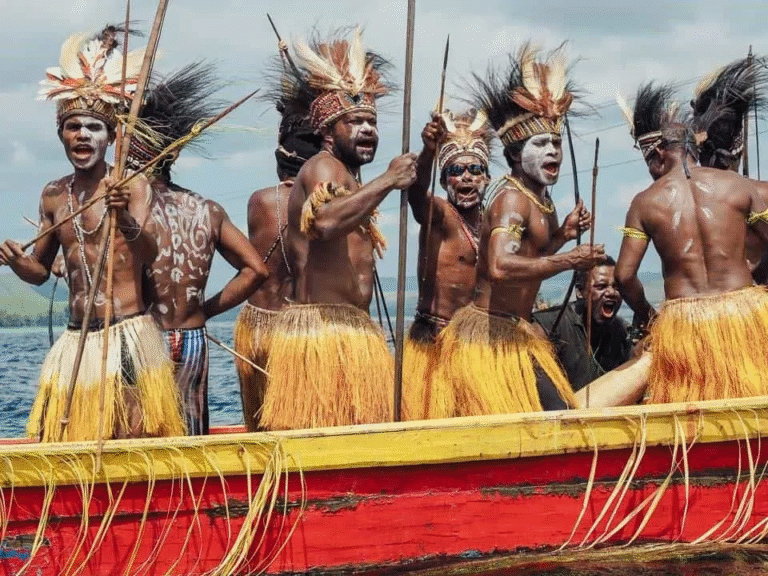



Great piece-really enjoyed the breakdown of creative strategy. It’s fascinating how tools like blend AI with design workflows, streamlining the creative process without losing the human touch.